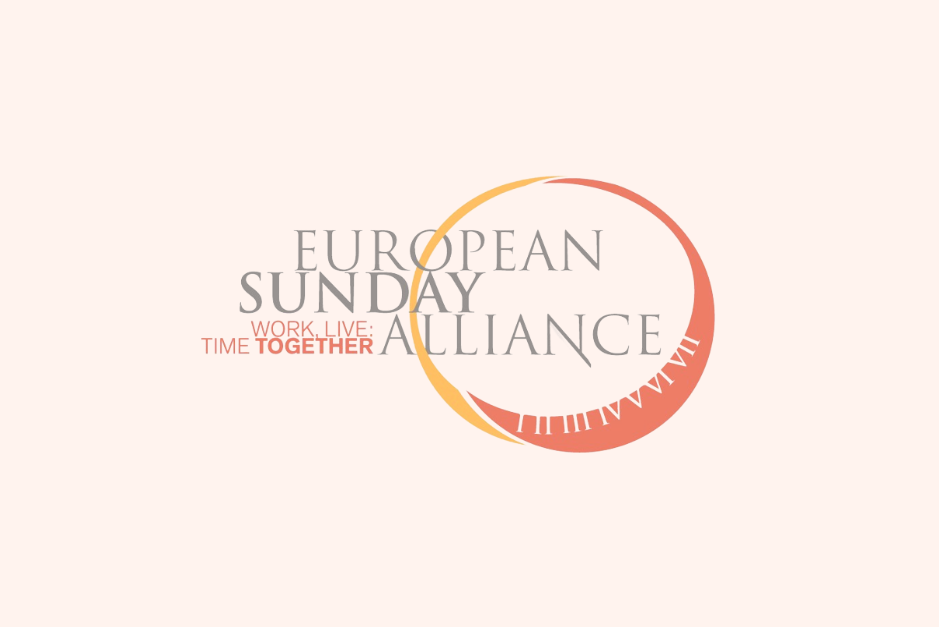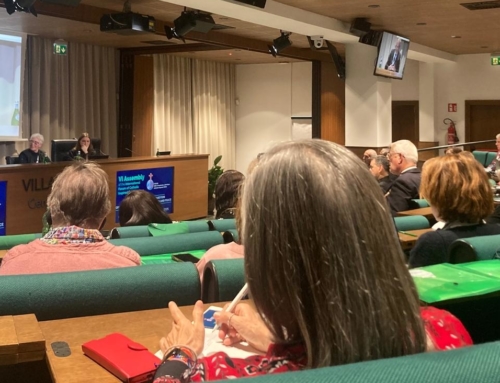Brussels, 15th of October 2025
The European Sunday Alliance contributed to the second-stage consultation launched by the European Commission on the workers’ right to disconnect and fair telework. FAFCE is proud to be a member of the Steering Committee of the European Sunday Alliance – a broad network of more than 100 national Sunday Alliances, trade unions, employers’ organisations, civil society organisations, churches and religious communities committed to raise awareness of the unique value of synchronised free time for our European societies.
Opinion of the European Sunday Alliance
to the European Commission on a possible new
EU directive on a right to disconnect and fair telework
Brussels, October 5, 2025
The right to disconnect’ refers to a worker’s right to be able to disconnect from work and refrain from engaging in work-related electronic communication, such as emails and other messages, during non-work hours and holidays. The European Sunday Alliance (ESA) welcomes the European Commission’s initiative to explore legislative measures on fair telework and a right to disconnect.
In the view of the European Sunday Alliance, this is an opportunity to address growing challenges faced by workers in the context of digitalisation and remote work whilst ensuring workers’ rights to health and safety at work as well as work life balance.
The Working Time Directive (2003/88/EC) by defining working time, maximum working hours and minimum daily and weekly rest periods that should be respected in order to safeguard workers’ health and safety refers to a number of rights that indirectly relate to ‘right to disconnect’ issues.
Therefore, the European Sunday Alliance strongly supports a directive or an addition to the current Working time directive that ensures and clarifies a right to disconnect for all workers.
It is evident that synchronising resting time as well as disconnection contribute significantly to the physical and mental health of workers and their families. As noted in Article 2 of the European Social Charter and Article 31 of the EU Charter of Fundamental Rights, workers are entitled to just working conditions, including a weekly day of rest as already defined in the EU Working Time Directive. However, constant connectivity and the pressures of an ‚always-on‘ culture including on weekends and on Sundays result in increased stress, burnout, and related health issues for workers, especially in times when more and more people work from home.
While telework offers flexibility and productivity gains, it also exacerbates the blurring of work-life boundaries, especially on weekends and in the evenings. A structured approach to telework must protect workers from excessive availability expectations. The European Sunday Alliance emphasises the importance of ensuring disconnection/rest periods during weekends, particularly on Sundays, and on evenings to address these risks and guarantee quality jobs.
The European Sunday Alliance therefore calls on the European Commission to consider a regulation on the right to disconnect in addition or in the form of a new Working time directive. The Alliance also keeps on arguing for a common day of rest – which shall, as far as possible, coincide with the day recognised by tradition or custom in the country or region concerned as a day of rest (in practice on Sundays) – to be included in a legislative proposal for a possible new working time directive.
FAFCE has long called for the work-free Sunday, highlighting it in resolutions on young people and mental health, as well as on the crisis of loneliness.
Vincenzo Bassi, FAFCE President, says: “The worst sickness for the family today is loneliness. That is why supporting the European Sunday Alliance in achieving a work-free Sunday is so crucial. Family networks are key in the fight against this loneliness crisis.
However, it is essential that these family networks are giving the opportunity of quality time. When the family has time, they can open up the family to their networks and to their communities. It is only if we recognise the importance of time that we can begin to say that we put families at the centre of our communities.”







